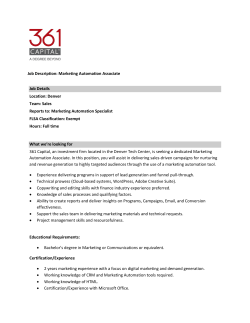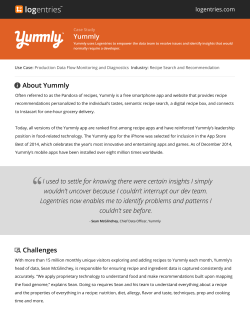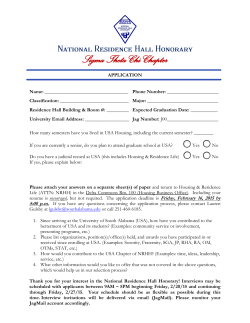
JAG PdiCS controls multi-batch processes fully
JAG PdiCS controls multi-batch processes fully automated Multi-batch process plants for ultimate efficiency and economy. CSL Behring produces immunoglobulins in high-efficiency multi-batch production plants which are among the largest and most modern of their kind in the world. Minimum throughput times, maximum utilisation of production plants The automation solution makes it possible to process multiple production batches on the one production line (multi-batch operation). This means CSL Behring achieves maximum utilisation of the plants at its Bern (CH) and Melbourne (AUS) sites. Process-related down times have largely been eliminated and the cleaning processes (CIP, SIP) are started and executed fully automated multiple shift operation, unmanned production takes place in a third shift. Consistently high product quality, maximum process safety Simultaneous controlling and monitoring of multiple production batches in the one plant are only possible through a high degree of automation. Continuous monitoring, fully automatic process control and systematic guidance for operators by the control system eliminate operator error almost entirely. Paperless production, efficient recording and management of process data The EBR solution electronically captures and records all parameters of importance to process control (PCPs) and automatically integrates these into the manufacturing documentation. All other production data are saved centrally and used for further analyses such as trend and performance analyses. All releases are entirely paperless (electronic releases). «The high degree of automation allows us to efficiently produce life-saving therapies without compromizing the highest, constant quality of products.» Arnold Nigsch, Director Ig Plant at CSL Behring AG, Bern The solution Simultaneous control of consecutive batches in one process cell. The cleaning processes (CIP/SIP) and auxiliary processes (e.g. preparation and supply of auxiliary media) are controlled by the recipes. Parameterisable operations are combined into recipes via a graphic editor. Operator identification, user rights administration and operator interaction recording take place by way of the JAG User Manager software module. Synchronisation of the individual production batches takes place at the control system level (Master Recipe Organiser - MRO). Each production batch has a recipe assigned to it. The recipes are executed at the control system level (JAG PdiCS). The control system also guides the operators. The JAG PFS process control system serves as a user interface for process monitoring and operator guidance. RECIPE X LOT 1 RECIPE Y LOT 2 RECIPE X LOT 3 RECIPE Z LOT 4 RECIPE X LOT 5 Diagrammatic illustration of simultaneous production of 5 batches in one process plant. Almost all process units are fully utilised. UNIT 11 UNIT 10 UNIT 9 UNIT 8 UNIT 7 UNIT 6 UNIT 5 UNIT 4 UNIT 3 UNIT 2 UNIT 1 Recipe-based control of production and auxiliary processes with JAG PdiCS in operation user interaction warning alert/stop The recipe-based control system requires operator interactions (blue fields) and alerts the operator in the event of errors and faults (yellow and red fields). «The implementation of JAG PdiCS process automation solution was very successful and achieved our required functionality within a very tight project schedule.» Geoff Armstrong, Manager Automation System, CSL Behring Broadmeadows JAG Jakob AG Prozesstechnik Industriestrasse 20, CH-2555 Brügg P +41 (0)32 374 30 30, F +41 (0)32 374 30 31, jagpt@jag.ch, www.jag.ch About JAG JAG Jakob AG is a process engineering leader, planning and implementing the most challenging of process plants and automation solutions for the pharmaceuticals and biotech industries as well as for the foodstuffs industry. With our own JAG PdiCS automation and system solution, we are able to achieve total automation even of extremely complex and large-scale production processes in the pharmaceuticals and biotech industries.
© Copyright 2025












